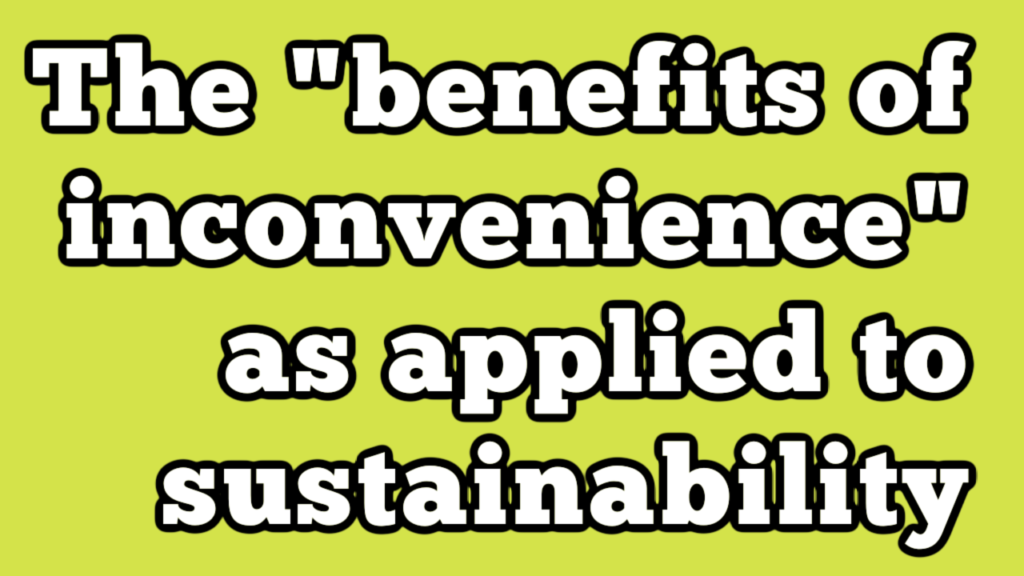The “benefits of inconvenience” as applied to sustainability

Here’s a note from Nawar Alsaadi:
I recently came across the work of Professor Hiroshi Kawakam at Kyoto University, who studies a principle of systems design known as “the benefits of inconvenience”. (You can see a presentation of Professor Kawakam’s work). System design in which inconvenience is intentionally embedded is called “Fuben-Eki.” (You can read more about the concept).
The idea behind Fuben-Eki is to counter the negative aspects of excessive convenience which often lead to skill degradation, reduced awareness of our surroundings, and diminished affirmative feelings. Examples of negative aspects of excessive convenience includes reduced mental mapping capacity due to excessive reliance on a GPS system, muscles atrophy due to dependence on mechanical transportation (elevators, cars … etc.), decreased social interactions due to excessive focus on home entertainment … etc. Fuben-Eki design aims to preserve basic human skills by removing a degree of convenience, or introducing an intentional inconvenience in modern design.
I believe Fuben-Eki design has tremendous sustainability implications. For example, buildings consume 39% of the energy we use, if buildings were built with Fuben-Eki design in mind, they may have less elevators, or have a strict fixed energy quota for each housing unit. If supermarkets were designed with Fuben-Eki design, environmentally and health damaging food items such as red meat may not be conveniently accessible in a refrigerated rack, and only accessible if ordered before hand.
If smartphones were Fuben-Eki designed, certain addictive Apps may only be accessed by remembering some of your contacts phone numbers, or opened through a complicated unlocking mechanisms. If cities were Fuben-Eki designed, they would make it impossible to access certain areas in a private car. As a matter of fact we are already seeing a version of Fuben-Eki in the elimination of short haul flights in Europe for cities where there is a train alternative, and limiting car access to many downtown areas.
The goal of Fuben-Eki design is not to make life more complicated, but rather to foster and encourage healthy behavior and to preserve our mental and physical skills. I think design ideas such as Fuben-Eki are critical if we are to re-engineer our relationship with the planet. We have been locked for a longtime in a merciless logic of ceaseless convenience regardless of the cost, perhaps its time we re-visit the perceived benefits of choosing convenience at the expense of everything else, including our humanity.
